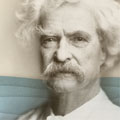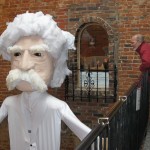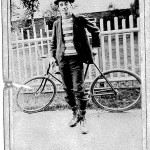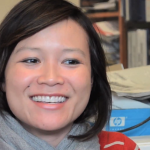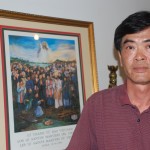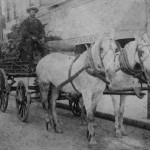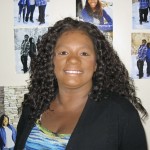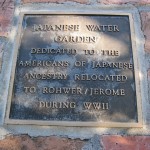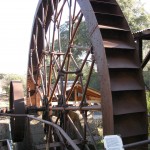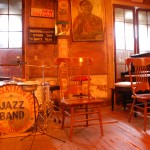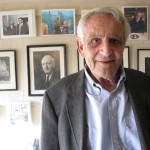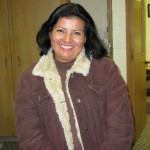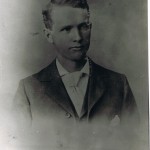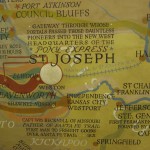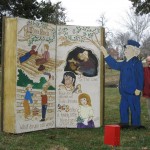It’s easy to miss the hulking brick building on Broadway when you’re in a hurry to get to Argyle, the busy hub of the Vietnamese refugee community in North Chicago. Nicknamed “New Chinatown” by Chicagoans, Argyle offers decidedly non-Chinese fare: steaming bowls of pho, French-style baguettes loaded with Vietnamese flavors, and Viet supermarkets with ingredients to make it all yourself.
We skipped the gastronomical splurge and instead visited the Vietnamese Association of Illinois, situated in a building shyly distanced from the heart of Argyle. Since 1976, the VAI has been serving Vietnamese refugees, who fled their homeland after the Vietnam War (which they, in turn, call the American War).
According to the 2010 Census, nearly 17,000 Vietnamese live in Illinois. The Vietnamese are one of many immigrant groups in Chicago that have created thriving neighborhood enclaves. With the community-building support of the VAI, Argyle has become a part of that success story in just one generation.
Dung Nguyen, bespectacled and wearing a safari vest, looks like a sort of bookish explorer. Nguyen, 68, directs the Community Care Program at the VAI, which assists seniors. A photograph of his younger incarnation as a handsome pilot in the South Vietnamese Air Force looks over his shoulder from its perch on the table behind him. It’s an altar for his proud military past.
Nguyen fought alongside American soldiers on combat missions. For that, he was imprisoned for 10 years after the Communists took Saigon and rebranded it “Ho Chi Minh City.”
He remembers being interviewed by a Saigon journalist shortly before immigrating to the United States in 1992. He was asked where he would most like to live in America.
“Anywhere,” Nguyen said. “Anywhere in the United States, because this is a free country and everywhere it’s the same.” He had no preference for Chicago, Houston or New York. Nguyen just wanted to live in the “dreamland.”
Nguyen was born in Phan Thiet, a coastal town in central Vietnam. At 17, he moved to Saigon to pursue an education in English and American literature. He remembers being particularly fond of Twain, Hemingway and Steinbeck. Twain, he recalls, was his favorite.
Even in Nguyen’s second-floor office, the children playing on the floor below could be heard screaming and laughing. “The afterschool program,” Nguyen explains, shaking his head and smiling at the same time.
When the Vietnamese came to Chicago after the war, their main problem with adjusting to life in America was the language barrier, Nguyen said. Few could speak English as well as Nguyen. Today, he laments the irony that second-generation Vietnamese-Americans are “forgetting Vietnamese” and communicating with one another almost exclusively in English.
To counter this trend, the VAI offers free weekend courses in Vietnamese for children in the community. Nguyen said the non-profit also tries to attract young people with its yearly festivals, the biggest being the Lunar New Year celebration, or Tet, where children are bribed into cultural partaking by small red envelopes (li xi), which are filled with an undisclosed amount of cash.
For all his support of preserving Vietnamese culture, Nguyen is not all that interested in going back to Vietnam. He hasn’t returned once in 19 years. Nguyen says he is skeptical of the government, especially one that would imprison him. He is also reluctant to visit because he has no more friends or family living in Vietnam. “I won’t have anyone to talk to,” Nguyen says.
Outwardly, Nguyen is cheerful and does not play up his harrowing experiences in the war or in prison. He is still very much enamored of literature. In his free time, Nguyen translates French poems into Vietnamese and publishes them in the organization’s monthly magazine. He also cultivates his penchant for travel.
“When I was in school in Vietnam, I studied American literature and we talked about Atlanta in Gone with the Wind. So when I came here, I traveled to Atlanta to have a look.”
Mark Twain, too, traveled around, Nguyen said, zigzagging his finger across an imaginary, unseeable America in front of him. As if we weren’t already painfully aware of that fact, having spent a considerable amount of time crisscrossing the unending plains of the Midwest. He shared a knowing laugh with us fellow travelers.
“Freedom is precious,” Nguyen says matter-of-factly. And that’s why he chooses to stay, knowing all the while that he can pack up at any time and join us on the road.
Dan

